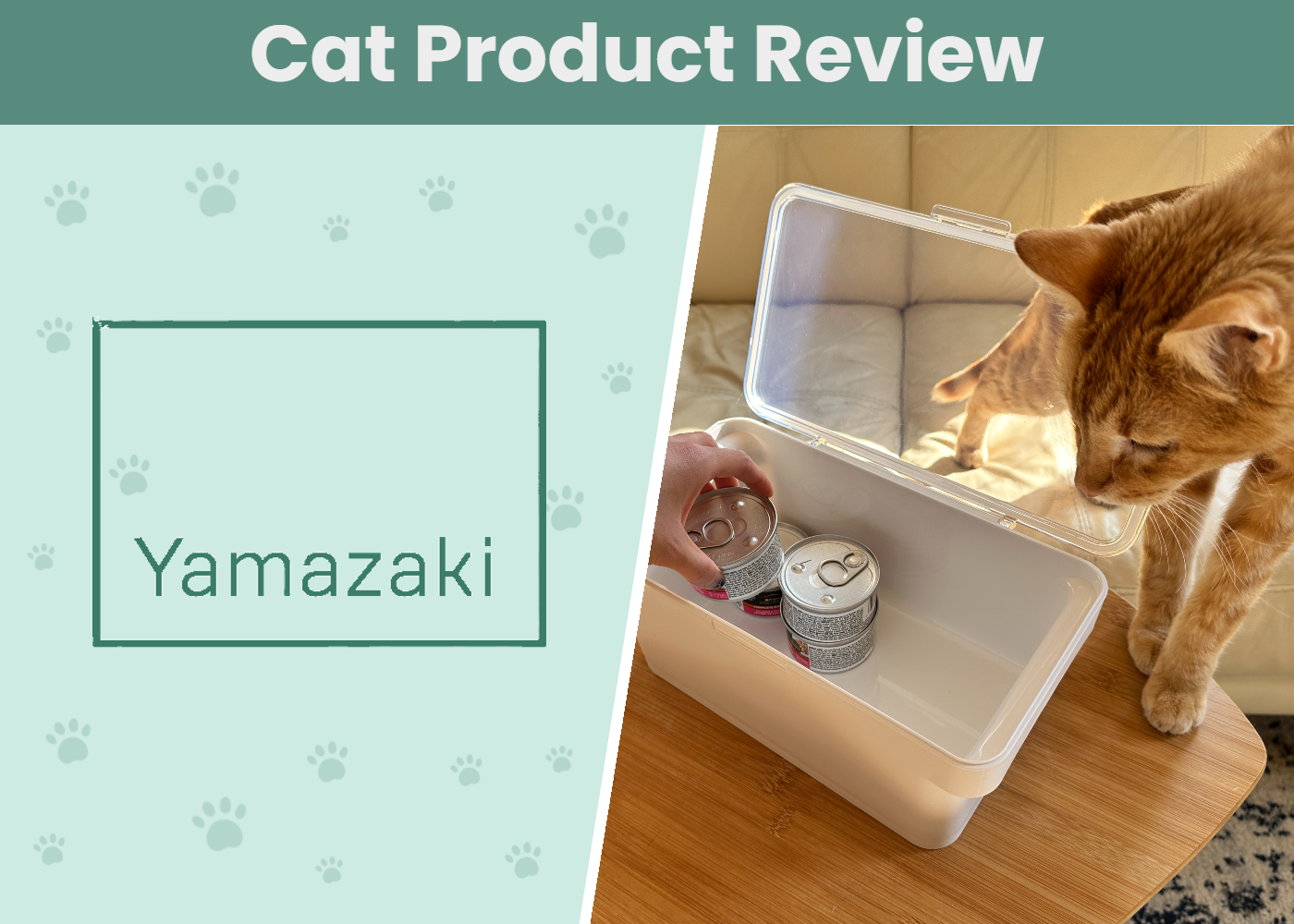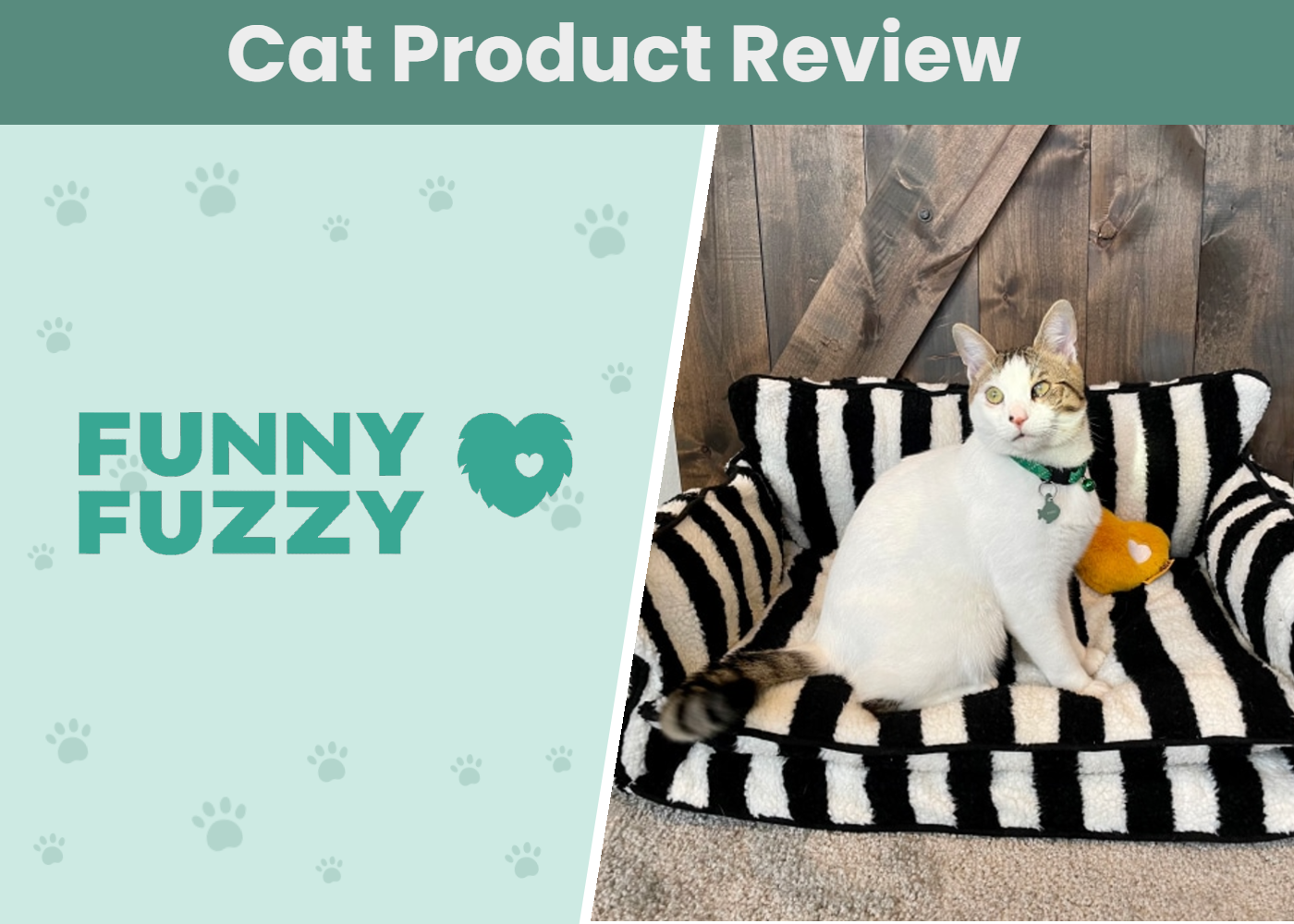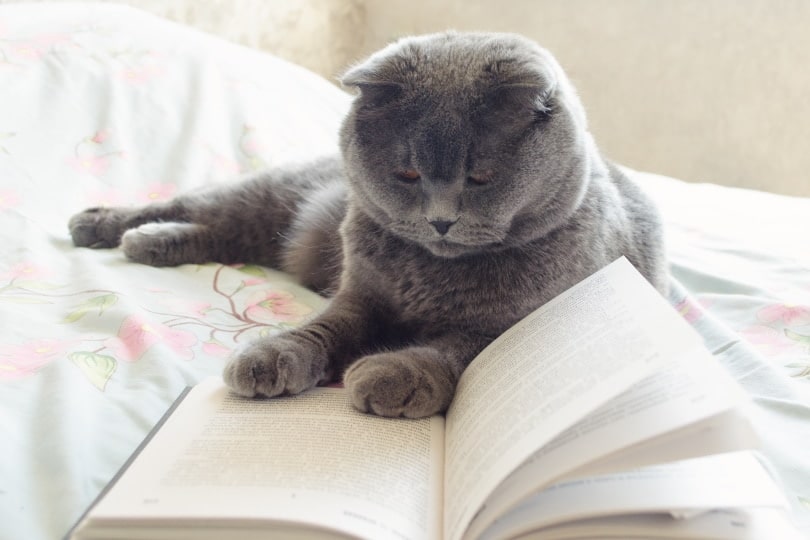
Whether you’re looking for actionable advice on how to toilet train a cat, DIY plans to make your feline friend a cardboard castle, or an exhaustive list of cat breeds; there is a cat book to suit you.
Below, we have put together a list of reviews of 10 of the best cat books for cat lovers to help you find something to pass away the hours or as the perfect gift idea for the cat lover in your life.
A Quick Comparison of Our Favorites in 2024
| Image | Product | Details | ||
|---|---|---|---|---|
| Best Overall |
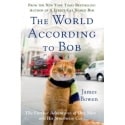
|
The World According To Bob |
|
CHECK PRICE |
| Best Value |
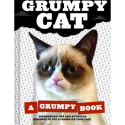
|
Grumpy Cat: A Grumpy Book |
|
CHECK PRICE |
| Premium Choice |
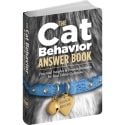
|
The Cat Behavior Answer Book |
|
CHECK PRICE |
| Best for Kittens or Puppies |

|
How To Toilet Train Your Cat |
|
CHECK PRICE |
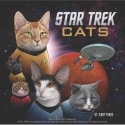
|
Star Trek Cats |
|
CHECK PRICE |
The 10 Best Cat Books for Cat Lovers
1. The World According To Bob – Best Overall
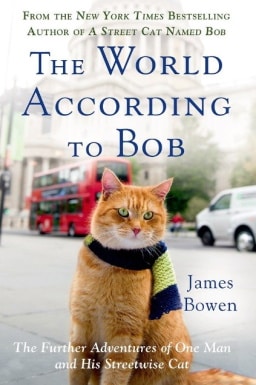
| Book type | Memoirs |
| Format | Paperback |
| Pages | 304 |
The World According To Bob is a collection of real-life stories about Bob, the cat, and James, his human, and is the sequel to A Street Cat Named Bob, which was an international bestseller. James was working as a street musician when he found Bob, a ginger cat with a broken leg. After Bob’s leg healed, the pair became inseparable, and Bob even rode the bus with James.
The book is over 300 pages long, available as a paperback, and is available at a reasonable price. It will raise a few laughs and plenty of smiles and may even cause a few tears. It’s ideal as a bedtime read or as a motivational gift to give a cat lover in your life. The unique look on life that The World According To Bob offers makes this the best overall cat book for cat lovers.
- The real-life tale of a human and his cat
- You don’t need to read the first book
- Good price
- Some upsetting sections
2. Grumpy Cat: A Grumpy Book – Best Value
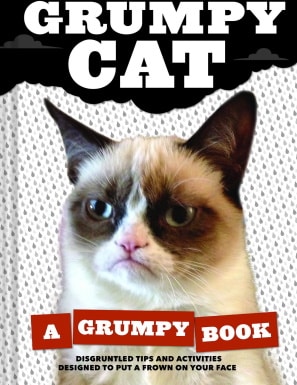
| Book type | Humor |
| Format | Hardcover |
| Pages | 96 |
Born in 2012, Grumpy Cat became famous because, thanks to a condition called feline dwarfism, she had a face that always looked grumpy. The expression was caused by the misplacement of her teeth in her move, which gave her the appearance of having a frown.
Her owners described her as actually being “really nice,” but she did not tolerate being handled by strangers. Although she sadly passed away in 2019, the Grumpy Cat legacy lives on, and she has been memorialized in Memes. The Grumpy Book contains nearly 100 pages of new and previously unseen photos, as well as activities and ideas on how to entertain a cat.
It costs less than the other books on our list, and it’s our pick for the best cat book for cat lovers for the money.
- Plenty of Grumpy Cat pictures
- Hardback will look good on the coffee table or bookshelf
- Quite a short book
3. The Cat Behavior Answer Book– Premium Choice
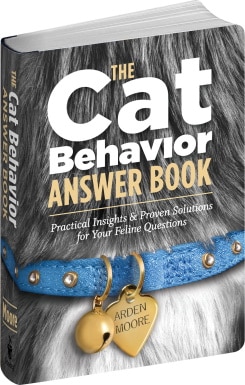
| Book type | Behavior book |
| Format | Paperback |
| Pages | 336 |
The Cat Behavior Answer Book is pricier than the Grumpy Book and The World According To Bob, but it can provide the answers cat owners have been looking for. It has over 300 pages of typical cat behaviors and analyses of what the behaviors mean. The book is written by Arden Moore, the author of over 20 books about cats and dogs and their behavioral quirks.
The book covers a wide range of behaviors, some of which you may be familiar with but others that will surprise you. It teaches us why cats knead their blankets and why they love catnip so much.
The book isn’t ideal for those who have specific questions about their cats, but it is an insightful and occasionally fun look at the animals with which many of us choose to share our lives. It will provide a greater understanding of your feline friend.
- More than 300 pages of cat behavior answers
- Learn about your cat’s fun and irritating habits
- Some of the information might be too basic for experienced owners
- Expensive
4. How To Toilet Train Your Cat – Best for Kittens
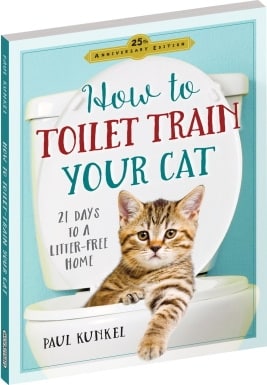
| Book type | Instructional |
| Format | Paperback |
| Pages | 144 |
Litter training a cat can be easy because a kitten will learn the necessary steps from their mother. However, this book does not teach you how to litter train a cat, but how to toilet train one. Cat owners’ lives would be much easier if we could teach them to use a toilet, which is this book’s aim.
It has over 130 pages of educational instructions that show how to get your cat to urinate and defecate in the toilet, but it doesn’t teach them how to flush. The book assumes that your kitten is already litter trained but will enable you to take them by the paw and guide them on the next steps.
Not all cats will learn to teeter on a toilet seat and aim into the bowl, but if you train your cat properly, you will have a cleaner life.
- Teach your cat to use the toilet in 21 days
- Low price
- Assumes your cat is litter-trained
- Unlikely to work on most cats
5. Star Trek Cats

| Book type | Illustrated humor |
| Format | Hardcover |
| Pages | 64 |
For the cat-loving geek in your life, Star Trek Cats is a unique illustrated book of cats and Star Trek by Jenny Parks. It remains remarkably true to the original Star Trek series, right down to Spock’s words of logical wisdom, but substitutes the Trekkie characters we all know with feline-based replacements.
The book caters to a very specific crowd, but it is an amusing tale packed with high-quality illustrations. Illustrator Jenny Parks is known for illustrating animals, dinosaurs, and more and is a regular at Comic-Con.
As a hardback, Star Trek Cats isn’t just a great gift, it makes an intriguing addition to the coffee table, vet’s waiting room, or a pet shop. It’s just a shame that there isn’t a calendar or mouse mat to accompany it.
- Well priced
- Unique combination of cats and Star Trek
- No calendar to accompany it
6. Dr. Pitcairn’s Complete Guide to Natural Health for Dogs & Cats
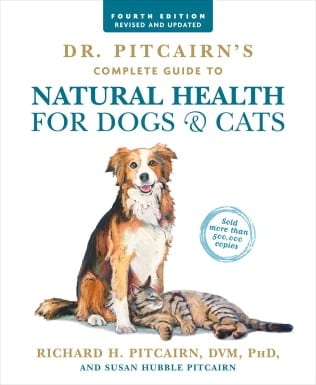
| Book type | Cat Health |
| Format | Paperback |
| Pages | 512 |
Proponents claim a natural diet provides health benefits to animals. However, some cat owners are scared off by the cost of buying fresh food, but practicality is the single biggest obstacle. Some cat owners don’t know where to turn for recipe ideas to ensure they prepare food that meets their cats’ nutritional requirements.
The book has been published for 30 years, showing its popularity and that a natural diet is not a new concept. As well as offering healthy, nutritional meal and snack ideas, the more than 500 pages also include essays and analyses of modern cat illnesses and their causes.
If you’re serious about feeding a natural diet to your cat, you must do your research, and Dr. Pitcairn’s Complete Guide To Natural Health For Dogs & Cats is a great resource. It is reasonably priced, too.
- Regularly updated since first publication
- 500 pages of advice and recipes on a natural pet diet
- Natural food isn’t ideal for all owners
7. Sorry I Barfed On Your Bed (And Other Heartwarming Letters From Kitty)
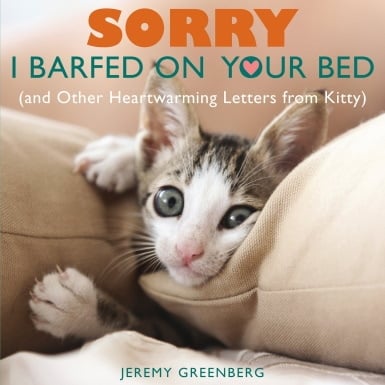
| Book type | Humor |
| Format | Paperback |
| Pages | 64 |
Being a cat owner comes with challenges. Whether your feline friend meows late at night to be let out or barfs in your bed, there are times when many of us momentarily question the logic of owning cats. However, the reverse is also true. Humans are undoubtedly difficult for cats to understand. Otherwise, why would they ignore us when we ask them to do something?
Sorry I Barfed On Your Bed (And Other Heartwarming Letters From Kitty) is a comedic collection of letters and observations from cats to humans. It is written by writer and comedian Jeremy Greenberg and contains stunning feline photos. As well as being an amusing book for cat owners, especially for those new to the whole process, it is also a good introduction to the author’s writing.
Our only real complaint is that the book is too short, with just over 60 pages, so it won’t take too many bedtime reading sessions to get from cover to cover.
- Decent price
- An amusing look at life from a cat’s point of view
- Just 64 pages
8. I Could Pee On This: And Other Poems By Cats
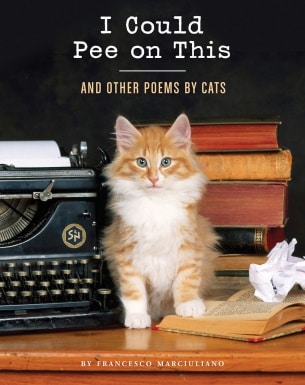
| Book type | Poetry |
| Format | Hardcover |
| Pages | 112 |
I Could Pee On This: And Other Poems By Cats is another humorous look at life through the eyes of our cats, but this time, it’s in prose form. Poems include “Who Is That On Your Lap?” and “This Is My Chair,” as well as dozens of other poems that will strike a note with cat owners everywhere.
The book is in its 30th printing and is reasonably priced. The hardback version would make a good conversation starter on your coffee table, and the poems will keep you coming back to read it repeatedly.
The book does a surprisingly good job of teaching us why cats are the way they are while also divulging some of their habits and secrets, so is not just a comedic look at feline ownership.
- 112 pages of amusing poems by cats
- Insightful look into cats’ inner thoughts
- Doesn’t take long to finish
9. The Complete Cat Breed Book
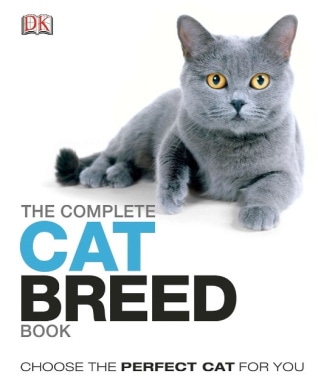
| Book type | Informational |
| Format | Hardcover |
| Pages | 256 |
Although it is called The Complete Cat Breed Book and includes extensive details on more than 50 cat breeds, The Complete Cat Breed Book also contains guides on how to choose the right breed, how to care for a new cat, and general feline maintenance to ensure that your cat is happy and healthy.
Each profile includes a history of the breed, as well as general details and specifics on the cat’s appearance. It includes information on temperament and interesting facts about the breeds.
It is a little pricier than some of the other books on the list, and it doesn’t really contain any unique information. While it contains information on 50 breeds, several breeds are omitted.
- Contains in-depth information on 50 breeds
- Offers advice and help on health, care, and maintenance
- Only covers 50 breeds
- Information is readily available elsewhere
10. Cat Castles: 20 Cardboard Habitats You Can Build Yourself
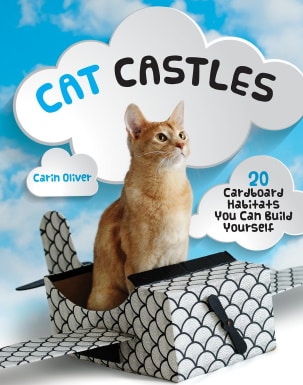
| Book type | Craft |
| Format | Paperback |
| Pages | 96 |
Cat Castles: 20 Cardboard Habitats You Can Build Yourself is an instructional book that combines a love of cats with a love of DIY crafts. It has instructions on building castles, scratch posts, and other items for your cat using cardboard and other common materials. With 96 pages, including diagrams, pictures, and instructions, the book could help you save money on expensive cat condos.
The instructions are vaguer than expected, and you must do some of the designing yourself. However, it is reasonably priced, and if your cat turns their nose up at commercially bought homes and posts, you can cut the cost and make your own.
- Instructions to build cardboard castles for your cat
- Inexpensive
- Instructions are not as detailed as they could be
Buyer’s Guide: Choosing the Best Books for Cat Lovers
Our list includes a small selection of the best cat books for cat lovers, but hundreds more are available. When buying a cat book, consider the following:
Hardback Or Paperback?
Paperback books are cheaper, more flexible, and don’t take up as much room in your house. But hardbacks are longer lasting and look great when displayed on a coffee table or a bookshelf. Ultimately, it comes down to personal preference and how you intend to use the book.
Book Type
- Informational – Informational books provide information on one or more aspects of cats. For example, a book on cat breeds lists some of the most popular or interesting breeds and includes history, physical characteristics, and other traits. Although the book doesn’t necessarily teach you how to better care for your cat, it includes facts you can use to decide on the ideal breed or to peruse and pick up little tidbits of information.
- Instructional – Instructional books provide training tips or instructions for building cat-friendly items. The Book Of Cat Castles shows you how to use cardboard to build cat homes in different styles. It might be possible to pick up individual plans elsewhere, but the book is easier to follow than reading a cell phone screen, and it curates all of the plans into a single book.
- Humor – Cats have several quirks, and some have comedic characters. So, it makes sense there is such an extensive collection of funny cat books. They’re ideal as a gift or to improve your mood before you go to bed, and they make a great addition to the coffee table for your visitors to pick up and read.
- Real Life – You might not associate cat books with memoirs, but you will find several books detailing the life of a seemingly ordinary cat. Typically, the books discuss the relationship between the cat and their owner, but they also include some personal tales of the cat’s life.
- Care and Training – Care and training books can teach everything from how to feed a natural diet to your cat to teaching your cat how to use the toilet. They make good gifts for cat lovers and are ideal if you have questions about your favorite cat.
Conclusion
It is estimated that more than 30 million households in the US alone own a cat, and only dogs are more popular (don’t tell your cat). Cat books provide insights into our cats’ lives and behaviors or heartwarming tales of how cats have changed peoples’ lives.
We’ve discussed several excellent books, but our favorite is The World According To Bob, which details how finding a stray cat with a broken leg changed the author’s life forever. Alternatively, The Grumpy Cat book is an excellent choice for anyone obsessed with cat pictures, especially ones with Grumpy Cat.
Featured Image Credit: HannaN, Shutterstock
Contents
- A Quick Comparison of Our Favorites in 2024
- The 10 Best Cat Books for Cat Lovers
- 1. The World According To Bob – Best Overall
- 2. Grumpy Cat: A Grumpy Book – Best Value
- 3. The Cat Behavior Answer Book– Premium Choice
- 4. How To Toilet Train Your Cat – Best for Kittens
- 5. Star Trek Cats
- 6. Dr. Pitcairn’s Complete Guide to Natural Health for Dogs & Cats
- 7. Sorry I Barfed On Your Bed (And Other Heartwarming Letters From Kitty)
- 8. I Could Pee On This: And Other Poems By Cats
- 9. The Complete Cat Breed Book
- 10. Cat Castles: 20 Cardboard Habitats You Can Build Yourself
- Buyer’s Guide: Choosing the Best Books for Cat Lovers
- Conclusion






